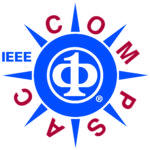Wednesday June 28, 1:30pm
Plenary: Open Science and Open Education
This plenary panel explores the integration of Open Science, which promotes transparency, collaboration, and accessibility, revolutionizing research and learning, and Open Education, to facilitate access to quality materials for all learners. We discuss the benefits of Open solutions in fostering interdisciplinary collaboration, knowledge sharing, and innovation. We examine the challenges and opportunities in Open practices.
Panel Moderators
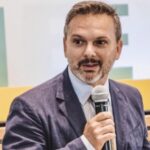 Marco Aldinucci is a full professor and P.I. of the Parallel Computing research group at the University of Torino. He authored over 150+ scientific articles. He has participated in over 15 EU-funded research projects on parallel and cloud and high-performance computing attracting over 10M€ of research funds. He has been the Italian delegate at the Governing Board of the EuroHPC Joint Undertaking (2018-2021). He started the HPC4AI lab (2018) and the CINI HPC-KTT national lab (2021). He is co-leading FutureHPC, the technological spoke of the Italian National Centre on HPC (ICSC).
Marco Aldinucci is a full professor and P.I. of the Parallel Computing research group at the University of Torino. He authored over 150+ scientific articles. He has participated in over 15 EU-funded research projects on parallel and cloud and high-performance computing attracting over 10M€ of research funds. He has been the Italian delegate at the Governing Board of the EuroHPC Joint Undertaking (2018-2021). He started the HPC4AI lab (2018) and the CINI HPC-KTT national lab (2021). He is co-leading FutureHPC, the technological spoke of the Italian National Centre on HPC (ICSC).
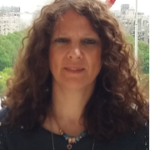 Marina Marchisio is full professor of Complementary Mathematics at the University of Turin and Delegate of the Rector for the development and promotion of the University’s Digital Education strategies. Her research is focused on Digital Education, in particular learning and teaching Mathematics and scientific disciplines with digital methodologies, innovative technologies, open education adn open educational resources. She coordinates the DELTA – Digital Education for Learning and Teaching Advances – Research Group of the University of Turin. She is a member of the Problem Posing and Solving working group of the Italian Ministry of Education which involves more than 800 secondary schools, 2000 teachers and 30000 students all over Italy. She is the President of the SUISS and is the coordinator of a PhD Program in Strategic Sciences. She coordinates several research and didactic projects, held and organized numerous conferences, and is the author of several publications on Digital Education.
Marina Marchisio is full professor of Complementary Mathematics at the University of Turin and Delegate of the Rector for the development and promotion of the University’s Digital Education strategies. Her research is focused on Digital Education, in particular learning and teaching Mathematics and scientific disciplines with digital methodologies, innovative technologies, open education adn open educational resources. She coordinates the DELTA – Digital Education for Learning and Teaching Advances – Research Group of the University of Turin. She is a member of the Problem Posing and Solving working group of the Italian Ministry of Education which involves more than 800 secondary schools, 2000 teachers and 30000 students all over Italy. She is the President of the SUISS and is the coordinator of a PhD Program in Strategic Sciences. She coordinates several research and didactic projects, held and organized numerous conferences, and is the author of several publications on Digital Education.
Panelists
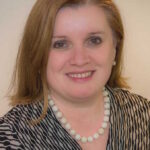 Diana Andone is the Director of the eLearning Center of Politehnica University of Timisoara, Romania, responsible for planning and implementing digital education and associate professor in multimedia, interactive and web technologies. Since 1998, she teaches course modules in universities from UK, France, USA, Finland, Italy, Greece. She has extensive research experience with intense publication (over 17 books, 100 research papers, 11 Best paper Awards, reviewer at 6 major journals and several other publications, associate editor at IEEE Transactions on Education, co-chair IEEE ICALT iOpenLearn) and more than 30 research and educational international projects. Dr. Andone is EDEN Senior Fellow, IEEE Education Society 2021 Distinguished Chapter Leadership Award winner, EDEN Vice-President for Communication and Communities (2018-2021), and member in IEEE Education Society Board of Governors (2021-present), in IEEE Romania Section the Educational activities Chair (2019-present) and in EUA Digital Transformation Steering Committee. She also acts in the Board of Romanian NGOs (Pentru Voi Foundation), in Timisoara 2023 European Capital of Culture Task Force and in other voluntary organisations (Rotary International). She is passionate about the ubiquitous access to technologies and how they can be used to improve people’s life, she actively supports the use of OERs, MOOCs and the open education principles, developing UniCampus.eu for training for digital skills, but also the local start-up movement, women in tech, and the digital culture. She initiated several projects for transforming communities, is invited as speaker at conferences and in the last 25 years involved in the digital education community movement in Romania, recently through the Together Online webinars and the digital culture and heritage with Spotlight Heritage Timișoara.
Diana Andone is the Director of the eLearning Center of Politehnica University of Timisoara, Romania, responsible for planning and implementing digital education and associate professor in multimedia, interactive and web technologies. Since 1998, she teaches course modules in universities from UK, France, USA, Finland, Italy, Greece. She has extensive research experience with intense publication (over 17 books, 100 research papers, 11 Best paper Awards, reviewer at 6 major journals and several other publications, associate editor at IEEE Transactions on Education, co-chair IEEE ICALT iOpenLearn) and more than 30 research and educational international projects. Dr. Andone is EDEN Senior Fellow, IEEE Education Society 2021 Distinguished Chapter Leadership Award winner, EDEN Vice-President for Communication and Communities (2018-2021), and member in IEEE Education Society Board of Governors (2021-present), in IEEE Romania Section the Educational activities Chair (2019-present) and in EUA Digital Transformation Steering Committee. She also acts in the Board of Romanian NGOs (Pentru Voi Foundation), in Timisoara 2023 European Capital of Culture Task Force and in other voluntary organisations (Rotary International). She is passionate about the ubiquitous access to technologies and how they can be used to improve people’s life, she actively supports the use of OERs, MOOCs and the open education principles, developing UniCampus.eu for training for digital skills, but also the local start-up movement, women in tech, and the digital culture. She initiated several projects for transforming communities, is invited as speaker at conferences and in the last 25 years involved in the digital education community movement in Romania, recently through the Together Online webinars and the digital culture and heritage with Spotlight Heritage Timișoara.
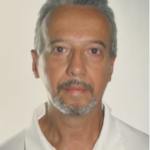 Raffale A Calogero (https://orcid.org/0000-0002-2848-628X) is the President of the Italian Bioinformatics Society, Member of the management committee of Elixir IT node and Member of the scientific committee of CINI InfoLife lab.He is the Director of Bgcore, the Bioinformatics and Genomics laboratory located at the Molecular Biotechnology Center (https://www.mbc.unito.it/en). He is is the cofounder of the Bioinformatic Reproducible Project, aiming to provide reproducible workflows for data analysis (http://reproducible-bioinformatics.org/). Prof. Calogero has a consolidated experience in the development of reproducible data analysis methods in the area of transcriptomics and genomics.
Raffale A Calogero (https://orcid.org/0000-0002-2848-628X) is the President of the Italian Bioinformatics Society, Member of the management committee of Elixir IT node and Member of the scientific committee of CINI InfoLife lab.He is the Director of Bgcore, the Bioinformatics and Genomics laboratory located at the Molecular Biotechnology Center (https://www.mbc.unito.it/en). He is is the cofounder of the Bioinformatic Reproducible Project, aiming to provide reproducible workflows for data analysis (http://reproducible-bioinformatics.org/). Prof. Calogero has a consolidated experience in the development of reproducible data analysis methods in the area of transcriptomics and genomics.
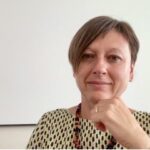 Rossana Damiano is an Associate Professor at the Computer Science Department of the University of Torino, where she teaches Web Programming and Semantic Technologies. Her research interests mainly concern the applications of Artificial Intelligence to Cultural Heritage, with a focus on the study and dissemination of cultural heritage. Coordinator for the University of Turin of the H2020 research and innovation project SPICE (Social Participation and Inclusion through Cultural Engagement) from 2021 to 2023; Coordinator, with Stefano Ferilli, of the Special Interest group on Cultural heritage of the Italian Association for Cultural Heritage (AI*IA); Deputy coordinator of the Working Group on Open Science of the University of Turin.
Rossana Damiano is an Associate Professor at the Computer Science Department of the University of Torino, where she teaches Web Programming and Semantic Technologies. Her research interests mainly concern the applications of Artificial Intelligence to Cultural Heritage, with a focus on the study and dissemination of cultural heritage. Coordinator for the University of Turin of the H2020 research and innovation project SPICE (Social Participation and Inclusion through Cultural Engagement) from 2021 to 2023; Coordinator, with Stefano Ferilli, of the Special Interest group on Cultural heritage of the Italian Association for Cultural Heritage (AI*IA); Deputy coordinator of the Working Group on Open Science of the University of Turin.
 Claudio Giovanni Demartini, Ph.D. and professor of Information Systems and Innovation Management, is an elected “Politecnico di Torino”’s Board of Directors member. His engagement in Education was enforced by cooperation with the Ministry of University and Education when he was also a member of the Board of Directors of the Foundation for the School – Compagnia di San Paolo. His research interests span software engineering, architectures, and web semantics, including assessment models to address learning improvement through data analytics adoption. Furthermore, he also serves as Associate Editor of IEEE IT Professional magazine and is a member of the Eta Kappa Nu, the Honor Society of IEEE.
Claudio Giovanni Demartini, Ph.D. and professor of Information Systems and Innovation Management, is an elected “Politecnico di Torino”’s Board of Directors member. His engagement in Education was enforced by cooperation with the Ministry of University and Education when he was also a member of the Board of Directors of the Foundation for the School – Compagnia di San Paolo. His research interests span software engineering, architectures, and web semantics, including assessment models to address learning improvement through data analytics adoption. Furthermore, he also serves as Associate Editor of IEEE IT Professional magazine and is a member of the Eta Kappa Nu, the Honor Society of IEEE.
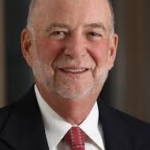 Sorel Reisman, 2011 Computer Society President, is Professor Emeritus of Information Systems at California State University, Fullerton; former Managing Director of the international consortium MERLOT (www.merlot.org) at the California State Office of the Chancellor; Standing Committee Chair of the IEEE Computers, Software, and Applications Conference (COMPSAC); Member-at-Large of the IEEE Technical Activities Board Strategic Planning Committee (SPC); Member-at-Large of the IEEE Education Society Board of Directors; IEEE Fellow; and Fulbright Scholar.
Sorel Reisman, 2011 Computer Society President, is Professor Emeritus of Information Systems at California State University, Fullerton; former Managing Director of the international consortium MERLOT (www.merlot.org) at the California State Office of the Chancellor; Standing Committee Chair of the IEEE Computers, Software, and Applications Conference (COMPSAC); Member-at-Large of the IEEE Technical Activities Board Strategic Planning Committee (SPC); Member-at-Large of the IEEE Education Society Board of Directors; IEEE Fellow; and Fulbright Scholar.
Reisman has served as VP of the Computer Society Publications Board, and as VP of the Electronic Products and Services Board. Reisman was an editorial board member of IEEE Software; founding board member of IEEE MultiMedia, and of IT Professional; he is Chair of the ITPro Advisory Committee. He served on the IEEE Publication Services and Products Board (PSPB) for almost 10 years. He is a member of the IEEE Xplore Platform Guidance Group, and a member of the IEEE Conference Portfolio Review Committee.Reisman has presented or published 125+ articles and authored the books Multimedia Computing: Preparing for the 21st Century, and Electronic Learning Communities—Current Issues and Best Practices. He has held management positions at IBM, Toshiba, and EMI, and received his BASc in electrical engineering, and MA and PhD in computer applications from the University of Toronto.
 Lieutenant Colonel Enrico Spinello is a Senior Officer of the Italian Army. He works in Italian Army Education and Training Command and School of Applied Military Studies –Turin as Section Chief for University and External Relations and he is the SUISS – University Interdepartmental School in Strategic Sciences – Coordinator for International Mobility. He holds a master’s degree in Strategic Sciences and a Post Master’s Degree Specializing Course in Strategic Sciences. He is involved in ERASMUS KA2 Projects: Digital Competences for Improving Security and Defence Education (DIGICODE), Military Gender Studies (MGS) and Interdisciplinary Education and Training on Hybrid Warfare (HYBRID). He is the IT-Army Representative in the Executive Academic Board (EAB) – Implementation Group (IG) in the European Security and Defence College (ESDC). He is the Deputy Chairperson of the IG and he represents the IG in the Sectoral Qualifications Framework for the Military Officer Profession Executive Group (SQF-MILEG).
Lieutenant Colonel Enrico Spinello is a Senior Officer of the Italian Army. He works in Italian Army Education and Training Command and School of Applied Military Studies –Turin as Section Chief for University and External Relations and he is the SUISS – University Interdepartmental School in Strategic Sciences – Coordinator for International Mobility. He holds a master’s degree in Strategic Sciences and a Post Master’s Degree Specializing Course in Strategic Sciences. He is involved in ERASMUS KA2 Projects: Digital Competences for Improving Security and Defence Education (DIGICODE), Military Gender Studies (MGS) and Interdisciplinary Education and Training on Hybrid Warfare (HYBRID). He is the IT-Army Representative in the Executive Academic Board (EAB) – Implementation Group (IG) in the European Security and Defence College (ESDC). He is the Deputy Chairperson of the IG and he represents the IG in the Sectoral Qualifications Framework for the Military Officer Profession Executive Group (SQF-MILEG).
